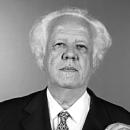[Op-Ed] The Spell is Broken in Venezuela
The clearest sign of the collapse of Maduro's regime are the images of people toppling statues of Hugo Chávez, cheered on by enthusiastic crowds.
MÁS EN ESTA SECCIÓN
The clearest sign of the collapse of Maduro's regime are the images of people toppling statues of Hugo Chávez, cheered on by enthusiastic crowds. Massive protests have occurred for many years, along with criticisms of Maduro and his inner circle, but the image of the commander who started the Bolivarian revolution remained untouchable. Not anymore. The spell is broken.
Chávez won four presidential elections with undeniable majorities and 8 out of 9 regional elections or referendums that he called. Even after his death in 2013, his ghost lingered over Venezuelan democracy. He was the government’s figurehead and the little bird that spoke to Maduro, telling him what decisions to make.
Maduro has not had the same fortune. Despite being named Chávez's heir, nearly losing the 2013 elections, and questionably winning the 2018 elections amidst high abstention rates and the forced withdrawal of the main opposition candidates, he is now blatantly stealing the elections held last month.
Why did the spell break, and why did Chavismo cease to be the majority force in Venezuela? "It's the economy, stupid." The truth is that Chávez captivated the majority of a population tired of corruption and burdened by poverty in a vastly wealthy country. His 21st-century socialism became the guiding model for progressive and left-wing movements in Latin America, which were left without direction after the Cuban revolution's decline.
The initial results were promising. After a recession at the beginning of the century, between 2004 and 2013, the GDP grew by 80%. Oil prices helped significantly, but for the first time, oil wealth was distributed, and the poverty rate dropped from 60% to 33%; extreme poverty also fell from 29% to 9%. The people had every reason to admire Chávez.
CONTENIDO RELACIONADO
With the end of the oil boom, the Chavista model revealed its serious flaws, and the economy collapsed. Between 2013 and 2020, GDP fell by 80%, and today Venezuela produces less than half of what it did when Chávez came to power. Inflation skyrocketed, and the poverty rate reached an astounding 93%. Millions of Venezuelans have left a country with no future for their children.
The worst of all is the corruption. It's a story as old as Venezuela itself, with Simón Bolívar once decreeing the death penalty for corruption, but it has worsened in recent years due to currency manipulation and, above all, the capture of PDVSA’s revenues. The people know this.
Maduro is clinging to power and will do whatever it takes to stay, not because he wants to defend a socialist or even progressive model, nor for the cause of the poor, nor the public interest against greedy capitalists. He needs to stay to protect himself, his inner circle complicit in human rights violations, and the "boliburgueses" who have plundered public resources, including many military officers. Removing him requires all the prudence and diplomacy that the governments of Brazil, Colombia, and Mexico are employing. Hopefully, they will succeed.
The left-wing movements that still believe in the spell and think that defending Maduro is standing against North American imperialism are mistaken.






DEJE UN COMENTARIO:
¡Únete a la discusión! Deja un comentario.